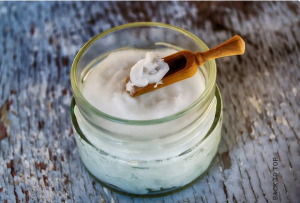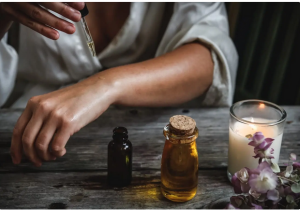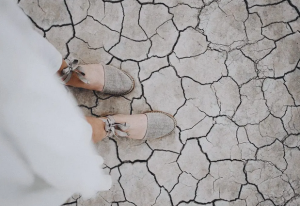This article is based on an interview of someone living with psoriasis. Many people don’t know much about psoriasis, and even if they do, it can be hard to imagine what someone’s everyday life might look like when living with psoriasis.
What is life like with psoriasis?
Psoriasis is an autoimmune disease. Psoriasis-affected skin renews itself seven times faster than healthy skin, which is why the skin stays very thin and doesn’t develop properly. It is constantly irritated: redness, itching, and dandruff are common. Skin is also more susceptible to injuries from scratching, clothing, or friction.
There’s currently no cure for psoriasis, but there are ways to manage the condition so that, at least sometimes, your skin is not inflamed.
There are various triggers that can cause psoriasis flare-ups, like stress, allergies, other diseases, or general physical weakness. Lifestyle choices can also have an effect. For example, alcohol, nicotine, and caffeine can exacerbate psoriasis symptoms. Caffeine and alcohol deprive your body of fluids and dry out your skin.
There are different recommendations in terms of nutrition. For example, some people emphasize avoiding dairy and red meat. In general, though, a healthy diet is definitely important and can make a difference.
The disease can also spread to other organs or bones, and inflammation of the joints sometimes occurs. This leads to pain and swelling of the joints, restricting movement.
What do you want others to know about psoriasis?
I want people to be aware about psoriasis and understand that it is not contagious.
For example, when I go to the hairdresser, I apologize for the dandruff and explain my condition so that the hairdresser doesn’t think that I’m unkempt, leaving my hair unwashed or neglected. Most of the time, hairdressers already know about psoriasis and don’t make a big deal out of it.
However, I’ve heard from some of my friends who also have psoriasis that they’ve encountered hairdressers who refuse to handle their hair because they find it disgusting.
How does psoriasis affect your everyday life?
Winter is worse than summer for most people living with psoriasis. Some only have psoriasis in the winter. In my personal experience, it’s usually better and easier to manage in the summertime because of the sun and airy clothes.
I have to be careful when buying clothes, and always buy breathable fabrics. Natural fabrics are less likely to irritate my skin, and smooth, flat-surfaced fabrics are best. No scratchy wools! Even the slightest friction can irritate the skin or cause it to bleed, as the skin is very sensitive.
The most common strategy for many people is actually to cover up and hide areas of the skin affected by psoriasis. Some won’t go out if their psoriasis is highly visible or if they’ve had negative experiences. Something to keep in mind is that people with psoriasis are more likely to suffer from depression and self-esteem issues. Always be kind, because you never know what someone may be dealing with!
Psoriasis is particularly distressing and difficult to deal with when it affects the hands and face. When it affects your hands, greetings become tricky because you don’t want to be in a situation where you end up disgusting someone when you go for a handshake.
When it affects the face, it can be hard to hide. Some people try to cover up affected areas with makeup, even though it’s not good for their skin and can make symptoms worse. If you want to use makeup, you have to lubricate for days beforehand to get the skin soft enough first. Even when you do that, makeup still tends to dry out your skin and aggravate the situation.
Usually, there’s no itching in places where there’s movement and friction within the body, such as elbows, knees, and other joints.
For some people with severe cases of psoriasis, the itching can become really debilitating. Some people become unable to work, for example if they have psoriasis from head to toe or if they have very large itchy patches. The itching doesn’t allow you to think or concentrate. It bothers you in your sleep, and prevents you from getting enough sleep and rest. Over time, being frequently sleep deprived and constantly itchy can really take a toll on your mental and physical health.
How do you cope with psoriasis?
My first strategy is always to hide affected areas. You end up dressing for psoriasis first and fashion second. Your personal sense of style essentially has to take a back seat. In the summer, I choose smooth, natural, airy fabrics without any texture. Of course, wearing natural fabrics is healthier anyway, but it’s also a limitation.
Very often people with psoriasis are ashamed of their own appearance: their skin is frequently red and looks inflamed. It can be hard because lots of people are uneducated about psoriasis and believe that your skin condition is contagious or unsanitary, or that you don’t take care of yourself. Many of those living with psoriasis avoid swimming in public places because people will get out of the water, act disgusted, or think it’s contagious. However, there are some swimming facilities for psoriasis patients and their families where they can go swimming undisturbed.





Very useful, I recommend it